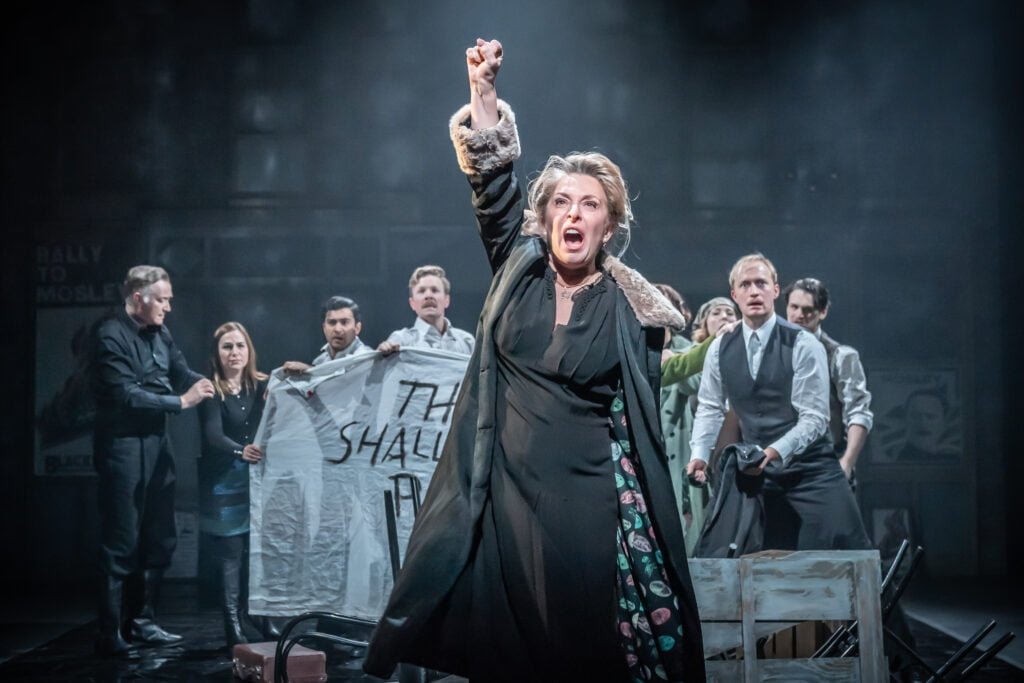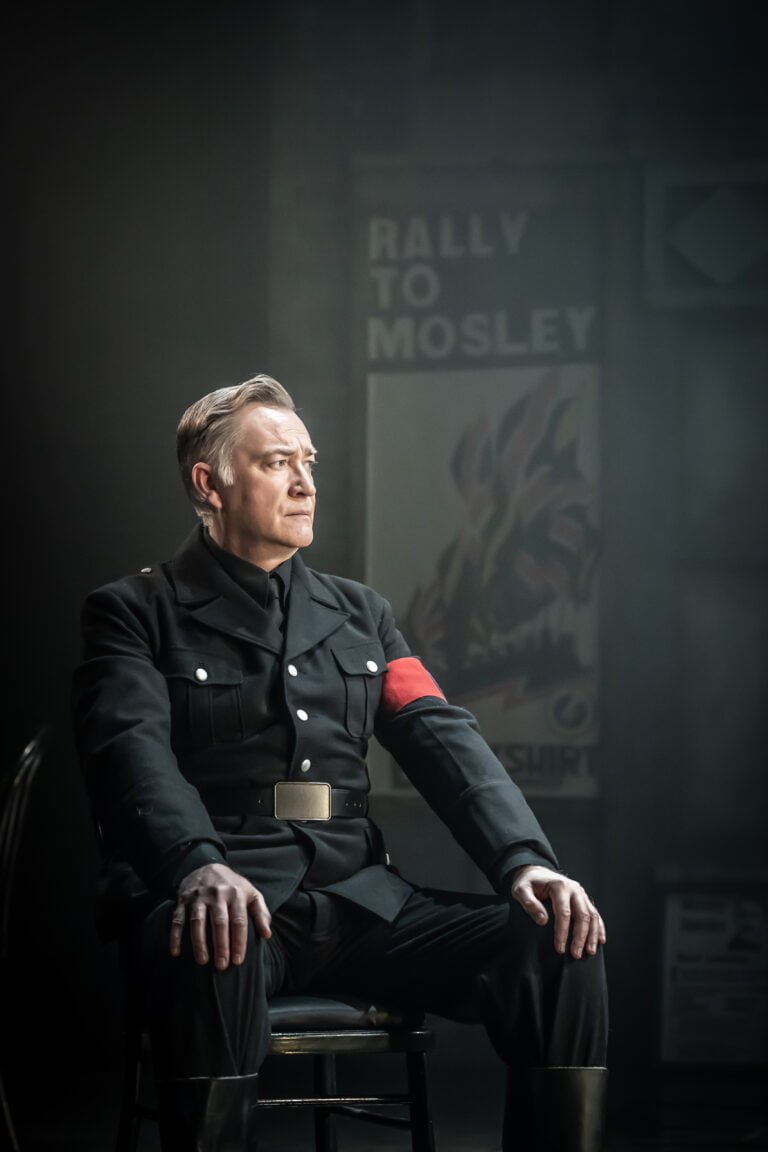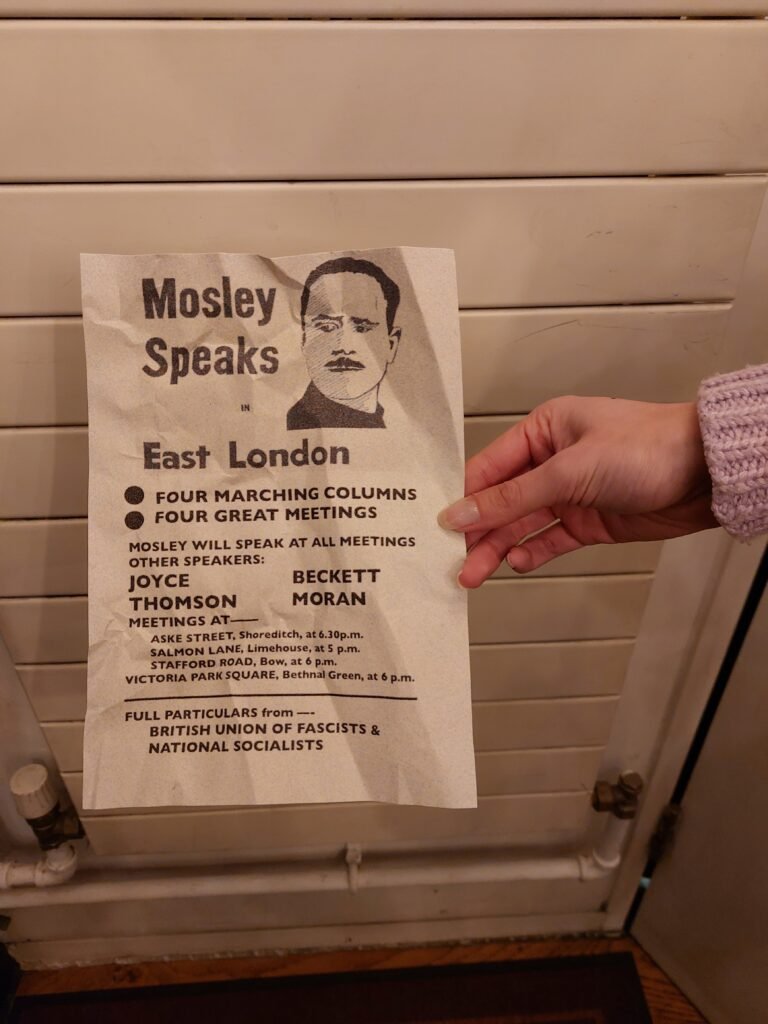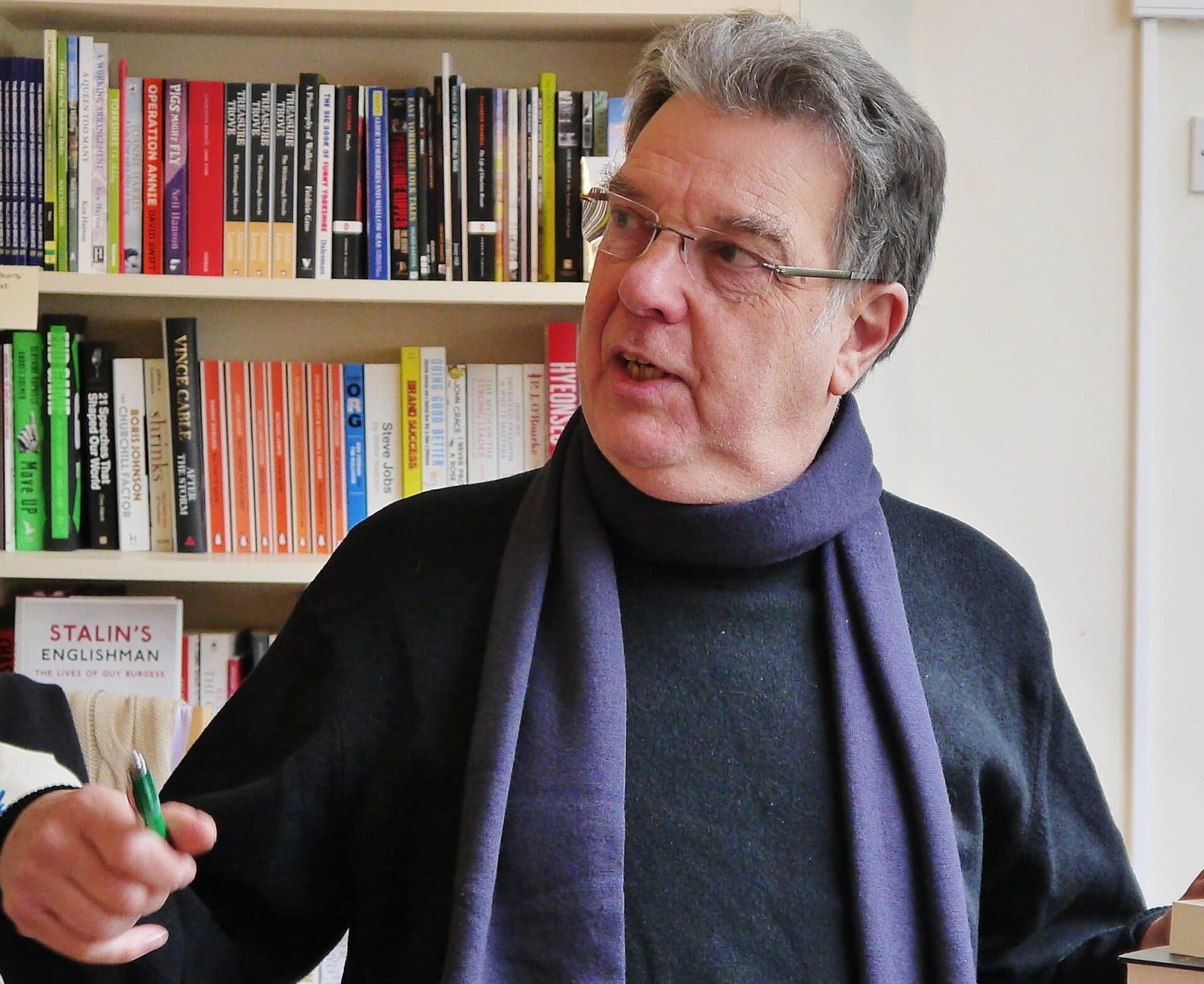What Shylock did at Cable Street
“If you prick us do we not bleed? If you tickle us do we not laugh? If you poison us do we not die? And if you wrong us shall we not revenge? If we are like you in the rest, we will resemble you in that.”
Shylock

Director Brigid Larmour and actor Tracy-Ann Oberman had the clever idea of transporting Shakespeare’s The Merchant of Venice to 1936, the year of the battle of Cable Street, when the British Union of Fascists tried to invade the East End of London, and they have made the play a powerful denunciation of anti-Semitism.
If you know the text well, the first thing you notice is how little they have had to change. All the weaponry was there already in this subtle, textured play. It is as though Shakespeare was able to step right out of his own time into ours – for in his time, Jews could not live legally in England (they had been expelled in 1290 and were not readmitted until Oliver Cromwell’s time) and were assumed to be alien and money-grubbing.
Larmour and Oberman have turned Shylock into a woman – a widowed Jewish pawnbroker who fled from persecution in Odessa in 1905. This required only some minor script changes – Shylock has to say that Antonio “did void your rheum upon my hair” instead of “my beard.” They have made some deep cuts to bring the play down to about two hours including an interval, and this has made the narrative more pacey and exciting.

All the audience’s sympathy is enlisted for Tracy-Ann Oberman’s magnificent Shylock. She starts out businesslike and matter-of-fact, and a tiny bit complacent, with a slight Mitteleuropa accent. We feel for her as her daughter Jessica (Grainne Dromgoole) is taken from her by her laughing enemies, and the moment she finds that Jessica has not only stolen the precious ring Shylock’s husband gave her, but then carelessly exchanged it for a monkey (“I would not have given it for a wilderness of monkeys”) is almost unbearable.
The Christians are a pretty unpleasant bunch, and again Shakespeare had already done most of the work for Larmour. Bassanio (Adam Buchanan) is shallow, greedy, lazy and entitled. Antonio (Raymond Coulthard) is bigoted, and sexually obsessed with Bassanio.
Gratiano (Xavier Starr) is a noisy and nasty racist who – in one of the few departures from Shakespeare’s script – arrives drunk outside Shylock’s house, urinates in the doorway, and sings a dreadful anti-Semitic song thought to have been written in 1939 by a neo-fascist Tory MP called Maule Ramsay, to the tune of Land of Hope and Glory: “Land of dope and Jewry, Land that once was free, All the Jew boys praise thee, Whilst they plunder thee.”

And Portia – Portia is their masterpiece. Hannah Morrish gives us a rich, languid, beautiful young woman, used to getting her own way. From the moment she enters, wearing jodhpurs and an expression of amused contempt, she is a joy to watch. The programme makes clear that she is modelled on Diana Mitford, the Mitford sister who married Oswald Mosley, and as one of the few people who has interviewed Lady Mosley, I can confirm that the disdain is authentic.
As a production of this extraordinary play, the Larmour-Oberman version is a triumph. But what of its ambitious attempt to link the play to Mosley’s British Union of Fascists?
The pre-publicity promises this link, the programme notes reinforce the promise, and in the bar there were some original fascist leaflets on display. One of them announced meetings to be addressed by Mosley’s top four propagandists, who were so well known at the time that it gave only their surnames, in big bold capitals: JOYCE, THOMPSON, BECKETT, MORAN.

Joyce, of course, is William Joyce, later Lord Haw Haw. Raven Thompson was British fascism’s theorist. Tommy Moran was a well known former professional boxer. And John Beckett was a former firebrand Labour MP, and (much later on) my father. I’ve written his story in a book called Fascist in the Family (Routledge.)
My father loved The Merchant of Venice – not, I think, for the same reasons that I love it. So I was keen to see whether this production of the play threw new insights on this part of his life.
It tried hard but never quite made it. The British Union of Fascists was never successfully turned into an intrinsic part of the play; it was slightly awkwardly bolted onto it. When, at the end, the cast gathers at Cable Street to defend the East End from the BUF, it seems to have no connection with what has gone before.
It doesn’t really matter. I think The Merchant of Venice is one of Shakespeare’s greatest plays, and this production does something new and exciting with it. It’s a tremendous night in the theatre, offering something that only live theatre can do.


Francis Beckett is an author, journalist, playwright and contemporary historian. He was the 2009 winner of the Ted Wragg Award for lifetime achievement in education journalism.
His latest two plays are A Modest Little Man (about Clement Attlee) and Vodka with Stalin.
Production Notes
The Merchant of Venice
Written by William Shakespeare
Adapted by Tracy-Ann Oberman and Brigid Armour
Directed by Brigid Larmour
Cast
Starring:
Adam Buchanan
Raymond Coulthard
Jessica Dennis
Gráinne Dromgoole
Priyank Morjari
Hannah Morris
Tracy-Ann Oberma
Xavier Starr
Alex Zur
Creatives
Director: Brigid Larmour
Designer: Liz Cooke
Lighting Designer: Rory Beaton
Sound Designer: Sarah Weltman
Composer: Erran Baron Cohen
Information
Running Time: Two hours with an interval
Booking to 11th March 2023 at Watford
Theatre:
Watford Palace Theatre
20 Clarendon Road
Watford
WD17 1JZ
Box Office enquiries:
01923 225671
Tube/Rail : Watford Junction
Telephone: 01923 225671
Website: watfordpalacetheatre.co.uk
Then: 15th March to 25th March 2023 at
HOME Manchester
2 Tony Wilson Place
Manchester
M15 4FN
Telephone: | 0161 200 1500
Website: homemcr.org
Reviewed by Francis Beckett at the final preview
at the Watford Palace Theatre
on 1st March 2023
